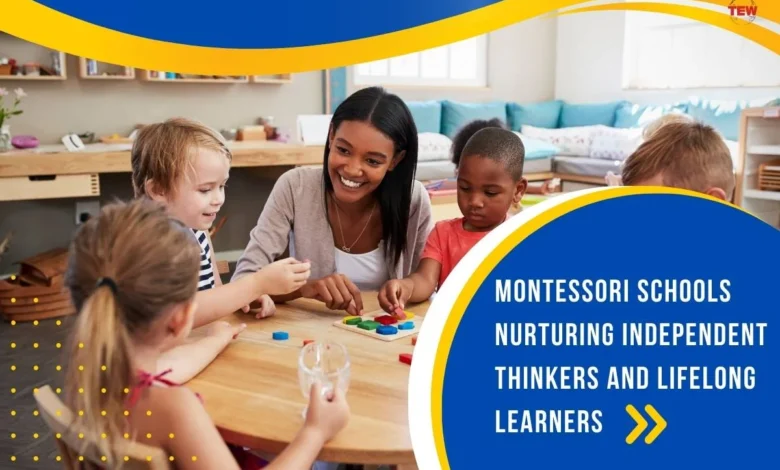The Montessori Approach: Nurturing Independent Learning

The Montessori education system is renowned for its unique approach to fostering independent learning and development in children. Central to this method are specially designed tools and activities that align with the Montessori philosophy. This article explores the principles of Montessori education and the benefits of incorporating Montessori methods and materials into your child’s learning environment. For more details, Visit Montessori.
What is Montessori Education?
Montessori education was developed by Dr. Maria Montessori, an Italian physician and educator, in the early 1900s. Her approach emphasizes self-directed activity, hands-on learning, and collaborative play. In Montessori classrooms, children make creative choices in their learning, while the classroom and the teacher offer age-appropriate activities to guide the process.
Core Principles of Montessori Education
1. Child-Centered Learning
Montessori education is tailored to the individual needs and interests of each child. This child-centered approach allows children to learn at their own pace, ensuring that they fully understand concepts before moving on to new material.
2. Prepared Environment
The environment plays a crucial role in Montessori education. Classrooms and learning spaces are carefully prepared with materials and activities that are accessible to children, allowing them to explore and learn independently.
3. Hands-On Learning
Montessori emphasizes learning through doing. Children engage with materials that teach concepts in a concrete way before moving on to more abstract ideas. This hands-on approach helps children grasp and retain information more effectively.
4. Fostering Independence
Children in Montessori programs are encouraged to take responsibility for their own learning and to develop independence. This is achieved through self-correcting materials and activities that allow children to learn from their mistakes.
5. Respect for the Child
Montessori education respects the individual differences of each child. Children are seen as naturally eager for knowledge and capable of initiating learning in a supportive, well-prepared learning environment.
Benefits of Montessori Education
1. Enhanced Cognitive Skills
Montessori activities are designed to promote critical thinking and problem-solving skills. By working with materials that require active engagement, children develop strong cognitive abilities that form the foundation for lifelong learning.
2. Improved Social Skills
Montessori classrooms are often mixed-age, which encourages older children to help younger ones, fostering a sense of community and cooperation. This setup helps children develop social skills and empathy.
3. Development of Fine Motor Skills
The use of specific Montessori materials, such as threading beads or using tweezers, helps children develop fine motor skills. These activities are essential for tasks such as writing and other daily activities.
4. Encouragement of Independence and Confidence
By allowing children to choose their activities and work independently, Montessori education builds confidence and self-esteem. Children learn to trust their abilities and take pride in their accomplishments.
Examples of Montessori Materials
- Practical Life Activities: Tools for activities such as pouring, scooping, and cleaning teach practical life skills and promote independence.
- Sensorial Materials: Items like the Pink Tower or color tablets help children refine their senses and learn to categorize and compare objects.
- Mathematics Materials: Tools like number rods and golden beads introduce mathematical concepts in a tangible way, helping children understand abstract ideas.
Integrating Montessori Principles at Home
Creating a Montessori-inspired environment at home can support your child’s development and learning. Here are some tips to get started:
- Designate Learning Spaces: Create areas in your home where children can access learning materials independently.
- Choose Simple, Natural Materials: Select toys and tools made from natural materials like wood and fabric, which are safe and engaging for children.
- Encourage Independence: Provide opportunities for your child to do things by themselves, such as dressing, preparing snacks, and cleaning up after activities.
- Rotate Toys and Activities: Keep your child’s interest alive by regularly rotating the toys and activities available to them.
Conclusion
Montessori education offers a holistic approach to child development, emphasizing independence, respect, and hands-on learning. By integrating Montessori principles and materials into your child’s environment, you can foster a love of learning and support their overall development.
For more information on Montessori education and to explore a range of Montessori materials, Visit Montessori.



